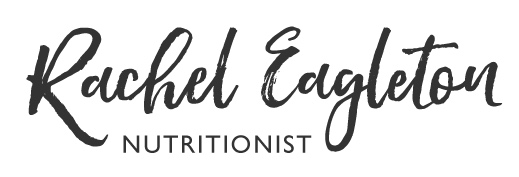Recovery Nutrition
/Are you back at the gym this week after a post-COVID lockdown? I am! 🙋♀️Feeling a bit sore? I am! 🙋♀️ Let’s talk about how getting your post gym meal or snack right can help you recover faster.
The goals of recovery nutrition are to:
-Refuel and rehydrate the body
-Promote muscle repair and growth
-Boost adaptation from the training session
-Support immune function
Proactive recovery nutrition is especially important if you complete two or more training sessions in one day or two sessions in close succession (e.g. evening session followed by early morning session the next day). However, if you’re exercising once a day a few times a week, recovery nutrition is still important but you may be able to meet your nutrition goals from your usual meals or snacks than adding in extra food.
What can happen if I get my recovery nutrition wrong?
Inadequate nutrition recovery, especially if training multiple times a day, can result in:
Increased fatigue (during training and at work or school)
Reduced performance at your next training session or event
Suboptimal gains from the session just completed
Increased muscle soreness
The body is best at muscle repair and growth in the first hour after exercise. However, repair will continue over the next 12-24 hours. Usually the best bet is to use your next regular meal after your workout as your recovery nutrition. Or, have a small snack to kick-start the recovery process, then use your next main meal to complete your recovery.
Post workout foods
Post workout foods should be:
-Rich in quality carbohydrate to replenish muscle fuel stores
-Contain some lean protein to promote muscle repair (around 20gr of protein is ideal)
-Include a source of fluid and electrolytes to rehydrate effectively
There’s no one “best” option for what to eat after exercise. Dairy foods such as flavoured milk, smoothies or fruit yoghurt can be a great option as they can provide carbohydrate, protein, fluid and electrolytes ticking all of your recovery goals in one handy option. Some other options that you may like to choose include:
Lean chicken and salad roll
An egg with wholemeal toast soldiers
Fruit smoothie - make this up the night before and have it on your way to work.
Bowl of muesli with yoghurt and berries. Here's my muesli recipe, make up a batch today and have it for brekky tomorrow after your workout!
Reducing inflammation
Load up on fruits, vegetables and healthy fats to reduce inflammation. Vitamin C is essential for repairing connective tissues and cartilage as well as wound healing. Vitamin C can be found in strawberries, citrus, kiwi fruit, capsicum and tomatoes. You also need Vitamin A to fight infection and for cell growth and development. You can find Vitamin A in sweet potatoes, carrots, spinach, kale and other leafy greens.
Red meat, shellfish, legumes, nuts, seeds and eggs are great sources of zinc, another important nutrient for immune function and growing and repairing body tissues.
Cocoa, tea, and colourful fruits and veggies are full of flavonoids which are powerful antioxidants that prevent cell damage and manage inflammation.
Foods rich in omega-3 fatty acids help reduce inflammation and speed recovery. Try to get in plenty of omega-3-rich fish like salmon, sardines, and anchovies, avocados, nuts and nut butters, seeds and extra virgin olive oil.
Pro-inflammatory foods from refined sugar and refined carbohydrates should be avoided, including processed foods high in saturated fats. Alcohol reduces the response of muscles protein synthesis by reducing the body’s inflammatory response so avoid alcohol if you want to get the gym gains!
Are there supplements to help me feel less sore?
There is plenty of research into supplements but at the moment the direct evidence as to efficacy is lacking. Some strategies that may be worth trying include:
Tart cherry juice for anti-inflammatory benefits and immune support
Fish oil supplements (maybe?)
Also I know you’re sore, but please, avoid taking ibuprofen or other nonsteroidal anti-inflammatory drugs (NSAIDs) after your workout. Since they work by suppressing inflammation they can reduce your muscles’ ability to recover afterward.
Enjoy your workout, build up slowly and prioritise eating a good quality snack or meal after your workout and you’ll be back stronger than ever!
Sources: Clinical Sports Nutrition, Sports Dietitian Australia
Rachel is a university qualified Clinical Nutritionist based in Balmain. She is also the busy working mum of two teenagers, so is practical and realistic with her advice . Rachel offers private consultations to improve your family's health and well-being. You can find her on Facebook and Instagram for more healthy tips and tricks.















